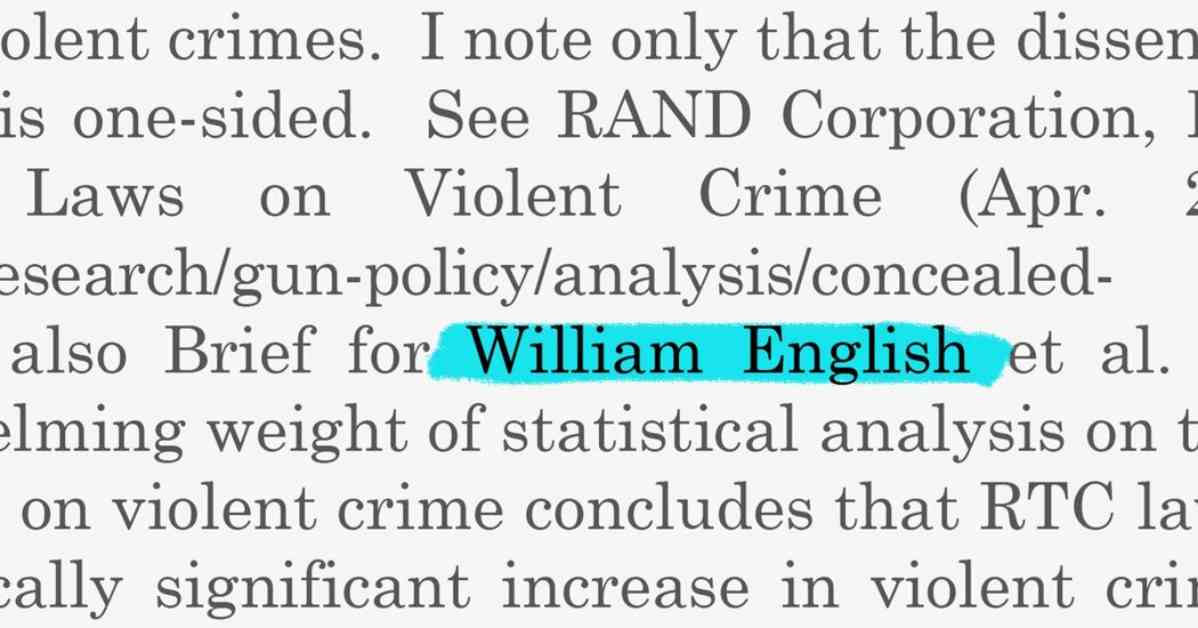In the midst of ongoing debates surrounding gun control and the Second Amendment in the United States, one individual’s name continues to surface in legal discussions and court rulings: William English, Ph.D. Dr. English, a political economist at Georgetown University, conducted a national survey that highlighted the use of firearms for self-defense by gun owners. This particular finding has been utilized by pro-gun activists to secure legal victories that have had significant implications.
Dr. English’s research has been referenced in a pivotal Supreme Court case that resulted in the nullification of various gun restrictions. Furthermore, his work has been cited in numerous lawsuits across the country aimed at overturning limitations on assault weapons, high-capacity magazines, and the carrying of firearms. Another Supreme Court case is currently under review this month, with Dr. English’s findings playing a role in the deliberations.
While Dr. English portrays himself as an unbiased researcher focused on data-driven analysis for the betterment of public policy, it has come to light that he has received substantial compensation as an expert witness for gun rights advocates. His survey work, originally conducted for a National Rifle Association-supported lawsuit, has raised concerns in some courts regarding the reliability and transparency of his research methods. Critics have pointed out that certain survey questions may have led to exaggerated responses in favor of defensive gun use, calling into question the integrity of his findings.
The 2022 Bruen decision by the Supreme Court significantly altered Second Amendment law by striking down contemporary gun restrictions that lacked historical precedent. This landmark ruling triggered a notable increase in firearms-related cases, with an average of 680 cases annually compared to just 122 in the previous decade. Additionally, pro-gun rulings have surged, with 74 such rulings issued last year, accounting for a quarter of all similar rulings since 2000. Various restrictions on firearms have been overturned by courts in states such as Oregon, Maryland, and California.
One aspect that has drawn attention is the context surrounding Dr. English’s survey questions. Some critics have highlighted that certain questions omitted crucial information or setup, potentially influencing respondents’ answers. By providing incomplete context, the survey results may have skewed perceptions regarding the prevalence of defensive gun use and ownership of specific types of firearms.
As the debate over gun control and the Second Amendment continues to evolve, the role of researchers like Dr. William English in shaping legal outcomes and public policies remains a subject of scrutiny and debate. The intersection of academic research, expert testimony, and advocacy efforts in the realm of firearms regulation underscores the complex and contentious nature of this ongoing national conversation.





















